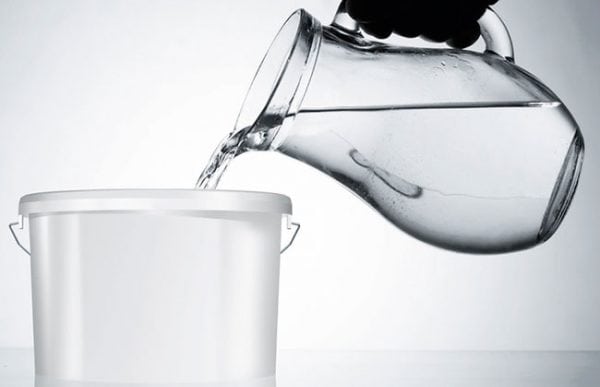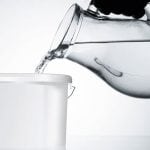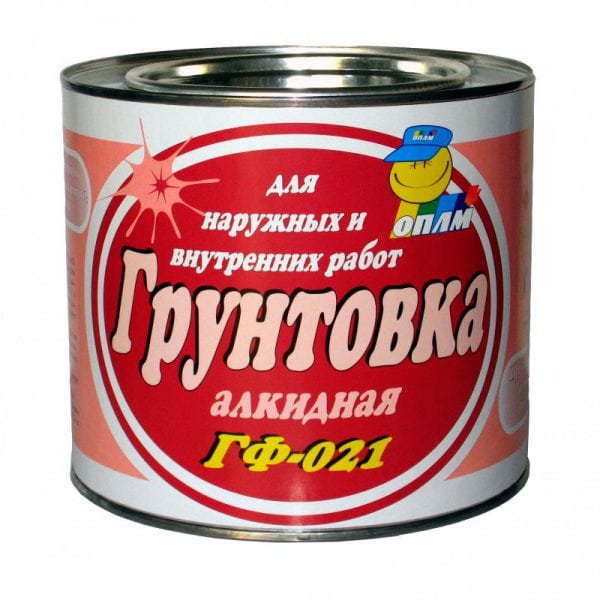Most primers are sold ready to use. Stir well enough and can be applied. The primer concentrate may need to be diluted. A number of products are presented in the form of dry soil, which must be diluted before work. How and how to do it?
To answer this question, you need to know the composition of the substances in the mixture, as well as which solvent (diluent) should be used. For example, the aqueous dispersion mixture is usually diluted with water. In other cases, a specific organic solvent is used. The choice of diluent may also depend on the type of base. By the way, to work on highly porous surfaces, the concentrate is almost never diluted.

Why do I need to prime the surface
- On the primed surface, the subsequent finishing materials lie more efficiently.
- Soil extends the life of the coating.
- Deep-penetrating primer mass can adjust the porosity of the base, strengthen it.
- After penetration, the primer prevents material wear and protects against corrosion.
- Disguise minor defects.
- Primers for painting, puttying, varnishing significantly reduce the consumption of finishing materials.
What to use as a diluent
Primers vary in composition, properties, application. Moreover, they are all divided into two types - reinforcing and enhancing adhesion (adhesion).
- Acrylic is also called dispersion or emulsion. We can say that it is universal, since it is used for almost all types of surfaces of walls, floors, and ceilings, but it is not used for metal, since it does not have anti-corrosion properties. Acrylic concentrate can be diluted with water. The substance is non-toxic, odorless. Adhesive primer and deep penetration can be acrylic.
- Alkyd is used more for the preparation of wooden walls, floors and other bases for further painting. Due to the deep penetration and loosening of the top layer of the tree, the primer mixture will provide better adhesion of the base and paint. It is used for enamel and for metal work. But it is not recommended to use for walls made of stone, concrete and other minerals. This also includes anti-corrosion alkyd mixtures with a rust modifier. The concentrate can be reduced with a similar organic solvent as in the mixture, or use white spirit, xylene, solvent, mixtures thereof.
Alkyd primer is more suitable for metal than for stone, concrete, etc. - Epoxy and polyurethane are used for processing the concrete base of walls, floors, ceilings, under enamel. Separate mixtures are also intended for work on metal (against rust) with subsequent enamel coating. To simplify the application and extend the start time of the polymerization, as a solvent, xylene (5-10% by volume) or other universal liquid is suitable.
- Polystyrene is used for walls - for plaster and wood. The substance is toxic. It requires the observance of individual protection measures, as well as good purging of the premises during operation and during the drying period. It is safest to use in the intermediate decoration of the exterior walls of a building.
- Primers for metal work are generally allocated as a separate group. The composition may contain various substances that are responsible for the special properties of the material: insulation, protection, transformation. The concentrate is diluted with various solvents to 10% of the total volume, but not with water. Mostly used types of "native" organic solvents or universal. Priming of metal structures in several layers is mandatory for enamel, painting and in conditions of constant humidity.
- insulating, protecting from moisture penetration and rust formation - glyphthalic, phenol-formaldehyde compounds. Form a strong, waterproof film;
- tread (passivating) - make iron immune to the influence of aggressive environments, that is, increase its insulation;
- transforming - convert rust into a sparingly soluble or rapidly degradable compound, increase the adhesive properties of materials.
- Perchlorvinyl is intended for the treatment of concrete and brick exterior walls. Typically, such compositions have a normal working consistency. The composition contains an organic solvent (xylene or solvent), it is also diluted with it, if it is too viscous.
Diluted, primer mixes better, sets faster. Nevertheless, the deep-penetrating is better manifested just in undiluted form.
Experts recommend that when performing intermediate construction and repair work, a primer is required. In turn, manufacturers of building mixtures worried that the client could use the material without problems, providing the packaging with instructions for use.






